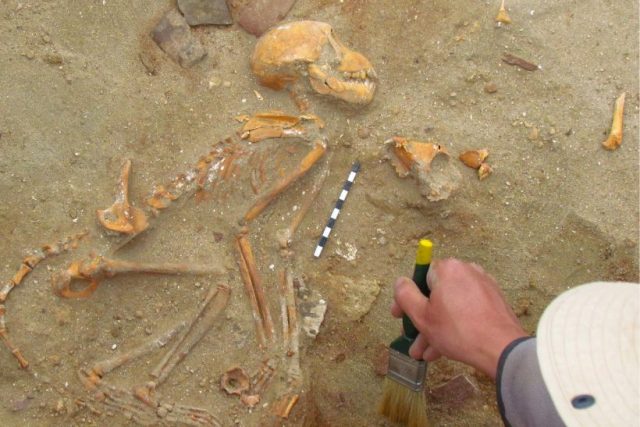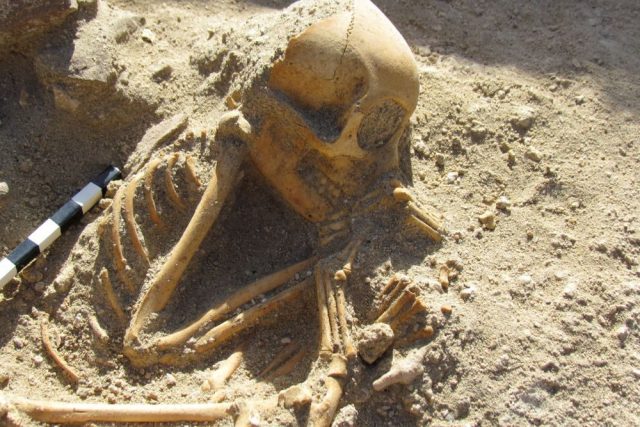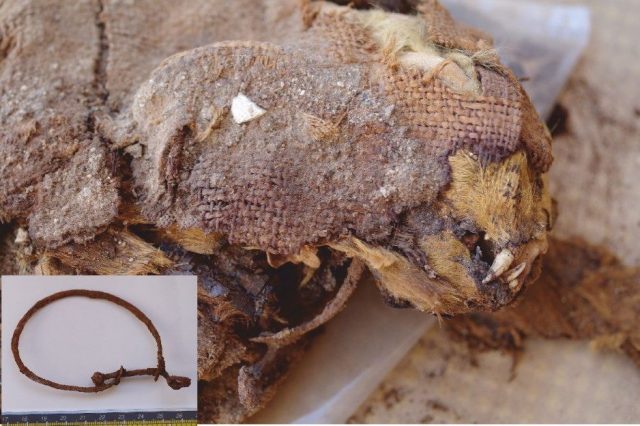Many people today have a predilection for exotic pets; for some, it’s snakes that hold an odd allure, for others, it’s big cats like tigers or cheetahs.
Consequently, there is a thriving, though illegal, wild animal black market, and some buyers willingly pay enormous sums to own a big cat monkey.

It has to do with image, often, or an attempt to show off wealth by purchasing something that most people couldn’t own, even though it’s bad for the animals involved and hugely expensive to purchase and maintain them.
It is a predilection that has been around for centuries, though at one time it was not illegal. And often, when an exotic pet died, it was treated with enormous love and respect when buried. Polish archaeologists found evidence this practice recently at a pet cemetery in Africa, a find that is the first of its kind.
Hundreds of animals’ remains were discovered in Berenice, once an outpost of the Roman Empire. The skeletons date back two thousand years, archaeologists say, to the 1st and 2nd centuries A.D.
Although most of the remains belong to cats, dogs and even one falcon, there were 16 sets of monkey remains found, specifically rhesus macaques.

Never before have monkey skeletons been found during a dig in Africa, and the team was surprised by the obvious tenderness and sentiment with which the monkeys were buried, “like sleeping babies,” a statement to the media said at the end of August.
The archaeologists, from the Warsaw University’s Centre of Mediterranean Archaeology, are excavating the site in conjunction with a team of experts from America. They’ve been digging at Berenice since 2008.
The animal burial plot is rather like the book “Pet Sematery” (sic) by novelist Stephen King come to life, but without the gruesome twists and scary ending.

All those years ago, Berenice was populated by many rich Roman citizens, and they often wanted exotic pets from India, just as certain wealthy people do today.
India was, of course, a rich trading source, and provided the Romans with spices, fabrics, and other goods. But getting rhesus monkeys to a far off land in Africa was not as simple as shipping crates of spices, and many died on route.
Some, however, made the journey successfully only to die shortly after they arrived. The archaeologists on the team speculate that anything from the incorrect diet to an inhospitable environment may have contributed to the animals’ early demise. Many of the skeletons are clearly those of very young monkeys.
The team also suggested that some of the specimens were taken from their mothers too soon, and were consequently not weaned, and therefore not strong enough, to endure such a long and taxing trip to Berenice.
According to Marta Osypinska, a zooarchaeologist at the Polish Academy of Sciences in Poznan, the trip would have taken weeks, a long period for animals kept in cages while
crossing the Indian Ocean and the Red Sea. But, she said, “this is a unique find. Until now, no one has found Indian monkeys at archaeology sites in Africa.”
Although the teams have been digging at the site for more than a decade, no one anticipated finding such unusual remains; most assumed that the monkey skeletons belonged to some species that was native to Africa.
The idea that the Romans wanted these exotic animals as pets, and were willing to have them shipped at great expense across two oceans, came as a surprise, Osypinska said.
It is further proof, unfortunately, that man has been taking animals from their natural habitats to keep as pets for countless centuries.
Another Article From Us: SS Cotopaxi Vanished in the Bermuda Triangle, Has Been Found 95 Years Later
The practice continues today, but perhaps with education and stiff penalties for exporting animals illegally, removing wild animals from their homes will one day soon become a distant memory.
